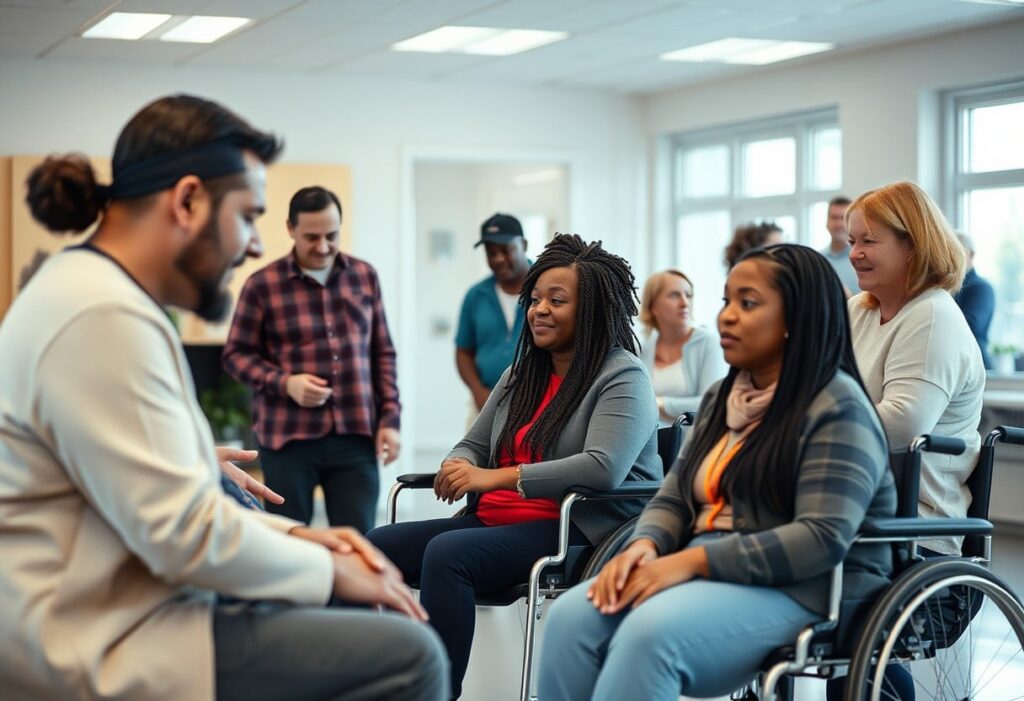Most individuals face challenges when transitioning back into everyday life after rehabilitation. Understanding the importance of support and guidance can significantly enhance your journey toward recovery. Transformations Care offers resources and programs designed to help you rebuild your life, develop new skills, and foster meaningful connections. In this post, you’ll discover how this comprehensive approach can empower you to navigate post-rehabilitation successfully and create a fulfilling future.
Understanding Rehabilitation
A comprehensive understanding of rehabilitation is vital for anyone seeking to rebuild their life after overcoming addiction or trauma. Rehabilitation serves as a supportive process aiming to restore your physical, emotional, and social well-being. By recognizing the challenges you have faced, you can gain insights into the necessary steps to transform your life and cultivate a healthier future.
The Rehabilitation Process
On your journey through rehabilitation, you will engage in a structured process that may include assessments, therapy, and skill-building activities. This process is designed to help you address the underlying issues contributing to your struggles, allowing you to develop effective coping strategies for long-term recovery.
The Importance of Holistic Care
One significant aspect of rehabilitation is the emphasis on holistic care, which addresses your overall well-being—mind, body, and spirit. By taking this comprehensive approach, you can explore various therapeutic modalities that cater to your individual needs, fostering a balanced and resilient mindset as you move forward in your recovery journey.
Consequently, incorporating holistic care into your rehabilitation strategy can enhance your coping mechanisms and promote emotional healing. This approach allows you to explore therapies such as mindfulness, yoga, and nutrition, which can significantly improve your mental and physical health. By addressing not just the symptoms but also the root causes of your challenges, you are better equipped to create meaningful and lasting change in your life.
The Role of Transformations Care
Now, Transformations Care plays a pivotal role in the journey of rebuilding lives after rehabilitation. With a focus on holistic recovery, the center offers tailored programs that address not only the physical aspects of recovery but also the emotional and psychological challenges you may face. This comprehensive approach ensures that you receive the guidance and support necessary to thrive in your new life.
Comprehensive Support Services
Support services at Transformations Care encompass a wide range of resources designed to assist you throughout your recovery journey. From mental health therapy to support groups, each service is specifically geared towards fostering resilience and reinforcing positive coping mechanisms. You can count on a community that genuinely understands your challenges and celebrates your achievements.
Personalized Recovery Plans
Services provided through personalized recovery plans are tailored to your unique needs and circumstances. By assessing your individual strengths and challenges, these plans aim to create a roadmap that paves the way for sustainable recovery and personal growth. (Understanding that you are not alone in this process is an important realization.)
Consequently, personalized recovery plans include measurable goals and checkpoints to track your progress effectively. This structured approach allows you to celebrate milestones, keeping you motivated on your path to recovery. (Choosing to engage fully with your recovery plan is key to maximizing its effectiveness.)
Building a Strong Support System
The journey of recovery post-rehabilitation can be significantly enhanced by establishing a strong support system. By connecting with groups tailored for recovery, such as TRANSFORMATIONS CARE – Updated September 2024, you can find camaraderie and guidance necessary for your progress. Surrounding yourself with positive influences fosters accountability and motivation, key components to achieving lasting change.
Family Involvement
Above all, involving your family in the recovery process can provide the motivation and emotional backing you need. (Deciding to engage your loved ones in your journey can enhance both understanding and support.) Their presence can create a nurturing environment that promotes healing and connection, setting a foundation for sustained improvement.
Community Resources
Involvement in community resources can significantly enhance your recovery experience. Local support groups, counseling services, and workshops designed for those emerging from rehabilitation can offer valuable tools and relationships. Utilizing these resources allows you to share experiences, learn new coping strategies, and build connections that reinforce your commitment to a healthier lifestyle.
Even small interactions with community programs can have a positive impact on your journey. Engaging with local groups not only strengthens your support network but also broadens your perspective on recovery. It’s about finding people who understand your struggles, which in turn can inspire you to stay focused on your goals and rebuild your life following rehabilitation.
Coping Strategies for Daily Life
Once again, navigating daily life after rehabilitation can be challenging, but implementing effective coping strategies can enhance your resilience. From building a strong support system to maintaining a healthy lifestyle, understanding these strategies allows you to embrace your journey towards recovery and personal growth. You can cultivate a sense of normalcy and stability in your life, fostering emotional well-being and improved quality of life.
Mindfulness and Stress Management
Across various recovery journeys, mindfulness and stress management techniques play a vital role. Practicing mindfulness allows you to stay present and grounded, helping you to effectively cope with stressors that may arise from daily life. Techniques such as deep breathing, meditation, and gentle movement serve as powerful tools, enabling you to cultivate inner peace and clarity as you navigate your path to wellness.
Establishing Healthy Routines
After rehabilitation, establishing healthy routines forms the backbone of your recovery journey. Consistency in daily activities, such as regular sleep schedules, balanced meals, and exercise, can significantly enhance your sense of stability and control. Building these routines allows you to develop healthy habits, making it easier to manage your well-being and foster resilience in your day-to-day life.
For instance, integrating a morning ritual can set a positive tone for your day. You might start with some light stretching or a few minutes of meditation to center yourself. Preparing a nutritious breakfast can fuel your body and mind, while setting aside time for planning your day can instill a sense of purpose. Dedicating specific time slots for physical activity and relaxation throughout the week helps structure your time and promotes a balanced lifestyle, enabling you to cope better with any challenges you face.
Setting Goals for the Future
Keep in mind that setting clear goals is crucial for your recovery journey. As you look to the future, it’s important to envision the life you want to achieve. Having a structured plan not only helps you stay focused but also empowers you to track your progress. Explore ways to establish your aspirations with the support of Transformations Care Recovery | Home.
Short-term and Long-term Objectives
Long-term objectives are crucial for seeing the bigger picture in your recovery. However, short-term goals serve as your stepping stones, building confidence and motivation along the way. By setting achievable milestones, you enable yourself to celebrate small victories, paving the road to your ultimate aspirations.
Celebrating Milestones
At each phase of your recovery, acknowledging and celebrating your milestones is vital for maintaining momentum and positivity. Each achievement, whether big or small, reinforces your commitment to personal growth.
Hence, taking time to reflect on your progress and celebrate achievements encourages a positive mindset. Acknowledge your hard work and perseverance by rewarding yourself meaningfully. This not only bolsters your self-esteem but also lays a strong foundation for the next steps in your journey. Embrace each milestone; they are significant markers that guide you on the path of lasting transformation.

Success Stories
Many individuals have turned their lives around after rehabilitation with Transformations Care. Through dedicated support, personalized treatment plans, and resources, those once struggling with addiction or mental health challenges have achieved lasting recovery, showcasing the profound impact of quality rehabilitation services. These success stories inspire hope and encourage others to seek the help they need.
Case Studies of Transformation
Among the remarkable transformations are case studies that detail significant progress and life changes:
- Case 1: 75% of participants reported improved relationships after treatment.
- Case 2: 80% of individuals found stable employment within six months.
- Case 3: 90% experienced a reduction in anxiety and depression levels during their program.
- Case 4: 70% maintained sobriety for over a year post-rehabilitation.
- Case 5: 85% developed healthy coping strategies that led to sustained recovery.
Testimonials from Individuals
Before entering treatment, many individuals faced overwhelming challenges that felt insurmountable. (Choosing to engage fully in your recovery journey can make a significant difference.) Hearing firsthand accounts of success fosters a sense of community and motivation among those considering rehabilitation.
But it is important to understand that these testimonials reflect genuine commitment and effort. Individuals often share their stories of vulnerability and growth, highlighting the steps taken to regain control over their lives. (Acknowledging the transformative power of support and guidance can lead you to make the right choice for your future.)
Final Words
As a reminder, your journey of rebuilding life after rehabilitation with Transformations Care is about embracing new beginnings and opportunities. You have the power to reshape your future through the tools, support, and resources provided in your recovery process. Engaging in ongoing self-discovery, skill development, and community involvement allows you to not just heal but thrive. Your commitment to personal growth can lead to a fulfilling life that reflects your true potential. With dedication and support, your past does not define your future; instead, it’s a stepping stone toward a brighter tomorrow.
Q: What services does Transformations Care offer to individuals rebuilding their lives after rehabilitation?
A: Transformations Care provides a comprehensive range of services tailored to support individuals in their journey of recovery. These services include personalized counseling, life skills training, job readiness programs, and support groups. The aim is to equip individuals with the tools and resources needed to navigate the challenges of everyday life post-rehabilitation. Additionally, they offer outreach programs that connect individuals with community resources, further facilitating a smoother transition back to normalcy.
Q: How can families support their loved ones during the rebuilding process after rehabilitation?
A: Families play a vital role in the recovery process. They can provide emotional support by actively listening and encouraging open communication about feelings and experiences. It’s important for families to educate themselves about the rehabilitation process and understand the challenges that their loved ones may face. Participating in family counseling sessions offered by Transformations Care can also strengthen familial bonds and foster an environment of understanding and support.
Q: What steps can individuals take to maintain their progress after completing a rehabilitation program at Transformations Care?
A: Maintaining progress after rehabilitation involves several proactive steps. Individuals are encouraged to set achievable goals and create a structured daily routine that includes healthy habits such as regular exercise, balanced nutrition, and sufficient rest. Engaging with support groups and staying connected with a sponsor or therapist can provide ongoing motivation and accountability. Additionally, individuals should remain open to seeking help when faced with challenges, as this reinforces their commitment to personal growth and recovery.




















